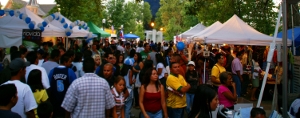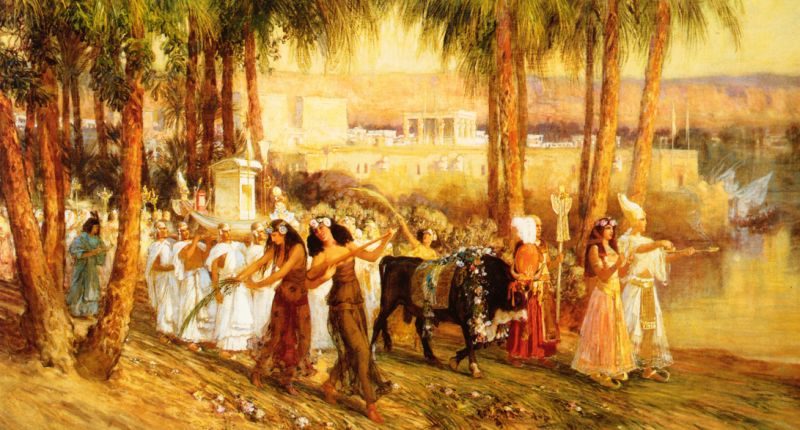|
Festival Latinoamericano
Festival Latinoamericano, or ''Latin American Festival'', is an annual three-day Labor Day weekend festival in downtown Provo, Utah. The festival highlights Utah's Hispanic culture through food, vendors, and performances and is free to the public. Festival Latinoamericano. It is currently in year . History and Purpose During the first year in 2001, the Festival was held at the Boulders Apartment Complex with about 75 attendants. The inaugural festival was a giant success, and quickly outgrew its South Provo location. The festival has since become a large yearly event in downtown Provo on the Utah County Historic Courthouse grounds on University Avenue and Center Street. In the last six years the festival has maintained an attendance of approximately 30,000 visitors.http://www.centrohispanouc.org/FestivalLatinoamericano/tabid/197/language/en-US/Default.aspx Festival Background The Festival's purpose is to provide a venue for nonprofit organizations and new companies to provide th ... [...More Info...] [...Related Items...] OR: [Wikipedia] [Google] [Baidu] |
Labor Day
Labor Day is a federal holiday in the United States celebrated on the first Monday in September to honor and recognize the American labor movement and the works and contributions of laborers to the development and achievements of the United States. The three-day weekend it falls on is called Labor Day Weekend. Beginning in the late 19th century, as the trade union and labor movements grew, trade unionists proposed that a day be set aside to celebrate labor. "Labor Day" was promoted by the Central Labor Union and the Knights of Labor, which organized the first parade in New York City. In 1887, Oregon was the first state of the United States to make it an official public holiday. By the time it became an official federal holiday in 1894, thirty states in the U.S. officially celebrated Labor Day. Canada's Labour Day is also celebrated on the first Monday of September. More than 80 other countries celebrate International Workers' Day on May 1, the ancient European holiday of May ... [...More Info...] [...Related Items...] OR: [Wikipedia] [Google] [Baidu] |
Provo, Utah
Provo ( ) is the fourth-largest city in Utah, United States. It is south of Salt Lake City along the Wasatch Front. Provo is the largest city and county seat of Utah County and is home to Brigham Young University (BYU). Provo lies between the cities of Orem to the north and Springville to the south. With a population at the 2020 census of 115,162. Provo is the principal city in the Provo-Orem metropolitan area, which had a population of 526,810 at the 2010 census. It is Utah's second-largest metropolitan area after Salt Lake City. Provo is the home to Brigham Young University, a private higher education institution operated by the Church of Jesus Christ of Latter-day Saints (LDS Church). Provo also has the LDS Church's largest Missionary Training Center (MTC). The city is a focus area for technology development in Utah, with several billion-dollar startups. The city's Peaks Ice Arena was a venue for the Salt Lake City Winter Olympics in 2002. Sundance Resort is northeas ... [...More Info...] [...Related Items...] OR: [Wikipedia] [Google] [Baidu] |
Utah
Utah ( , ) is a state in the Mountain West subregion of the Western United States. Utah is a landlocked U.S. state bordered to its east by Colorado, to its northeast by Wyoming, to its north by Idaho, to its south by Arizona, and to its west by Nevada. Utah also touches a corner of New Mexico in the southeast. Of the fifty U.S. states, Utah is the 13th-largest by area; with a population over three million, it is the 30th-most-populous and 11th-least-densely populated. Urban development is mostly concentrated in two areas: the Wasatch Front in the north-central part of the state, which is home to roughly two-thirds of the population and includes the capital city, Salt Lake City; and Washington County in the southwest, with more than 180,000 residents. Most of the western half of Utah lies in the Great Basin. Utah has been inhabited for thousands of years by various indigenous groups such as the ancient Puebloans, Navajo and Ute. The Spanish were the first Europe ... [...More Info...] [...Related Items...] OR: [Wikipedia] [Google] [Baidu] |
Lucha Libre
Lucha libre (, meaning "freestyle wrestling" or literally translated as "free fight") is the term used in Latin America for professional wrestling. Since its introduction to Mexico in the early 20th century, it has developed into a unique form of the genre, characterized by colorful masks, rapid sequences of holds and maneuvers, and "high-flying" maneuvers, some of which have been adopted in the United States, Japan, and elsewhere. The wearing of masks has developed special significance, and matches are sometimes contested in which the loser must permanently remove his mask, which is a wager with a high degree of weight attached. Tag team wrestling is especially prevalent in lucha libre, particularly matches with three-member teams, called ''trios''. Although the term today refers exclusively to professional wrestling (staged performances with predetermined outcomes), it was originally used in the same style as the American and English term "freestyle wrestling", referring to ... [...More Info...] [...Related Items...] OR: [Wikipedia] [Google] [Baidu] |
List Of Festivals In The United States
This is an incomplete list of festivals in the United States with articles on Wikipedia, as well as lists of other festival lists, by geographic location. This list includes festivals of diverse types, among them regional festivals, commerce festivals, fairs, food festivals, arts festivals, religious festivals, folk festivals, and recurring festivals on holidays. Festivals unique to the United States (and Canada and Mexico in some cases) include pow wows, Rocky Mountain Rendezvous, blues festivals, county fairs, state fairs, ribfests, and strawberry festivals. The first U.S. state fair was that of New York, held in 1841 in Syracuse, and has been held annually to the present year. The second state fair was in Detroit, Michigan, which started in 1849. Lists of festivals by local T ...
|
Centro Hispano
Centro may refer to: Places Brazil * Centro, Santa Maria, a neighborhood in Santa Maria, Rio Grande do Sul, Brazil * Centro, Porto Alegre, a neighborhood of Porto Alegre, Rio Grande do Sul, Brazil * Centro (Duque de Caxias), a neighborhood of Duque de Caxias, Rio de Janeiro, Brazil *, a neighborhood of Niterói, Rio de Janeiro, Brazil * Centro, Rio de Janeiro, a neighborhood of Rio de Janeiro, Brazil * Centro (São Paulo), the historic downtown of São Paulo, Brazil *, Aracaju, Sergipe, Brazil Mexico *Centro, Guadalajara, Jalisco, Mexico * Centro, Puerto Vallarta, Jalisco, Mexico * Centro Municipality, Tabasco, Mexico * Centro (borough), Tijuana, Baja California, Mexico *Centro, Yucatán, Mexico *Centro, the historic center of Mexico City, Mexico Elsewhere * Centro Habana, Cuba * Centro, Mandaue, a barangay in the Philippines *Centro Region, Portugal * Centro, Moca, Puerto Rico, a subdivision (also called a ''barrio'') of Moca, Puerto Rico *Centro (Madrid), a district of the ... [...More Info...] [...Related Items...] OR: [Wikipedia] [Google] [Baidu] |
Festivals In Utah
A festival is an event ordinarily celebrated by a community and centering on some characteristic aspect or aspects of that community and its religion or cultures. It is often marked as a local or national holiday, mela, or eid. A festival constitutes typical cases of glocalization, as well as the high culture-low culture interrelationship. Next to religion and folklore, a significant origin is agricultural. Food is such a vital resource that many festivals are associated with harvest time. Religious commemoration and thanksgiving for good harvests are blended in events that take place in autumn, such as Halloween in the northern hemisphere and Easter in the southern. Festivals often serve to fulfill specific communal purposes, especially in regard to commemoration or thanking to the gods, goddesses or saints: they are called patronal festivals. They may also provide entertainment, which was particularly important to local communities before the advent of mass-produced e ... [...More Info...] [...Related Items...] OR: [Wikipedia] [Google] [Baidu] |
Hispanic And Latino American Culture In Utah
The term ''Hispanic'' ( es, hispano) refers to people, cultures, or countries related to Spain, the Spanish language, or Hispanidad. The term commonly applies to countries with a cultural and historical link to Spain and to viceroyalties formerly part of the Spanish Empire following the Spanish colonization of the Americas, parts of the Asia-Pacific region and Africa. Outside of Spain, the Spanish language is a predominant or official language in the countries of Hispanic America and Equatorial Guinea. Further, the cultures of these countries were influenced by Spain to different degrees, combined with the local pre-Hispanic culture or other foreign influences. Former Spanish colonies elsewhere, namely the Spanish East Indies (the Philippines, Marianas, etc.) and Spanish Sahara ( Western Sahara), were also influenced by Spanish culture, however Spanish is not a predominant language in these regions. Hispanic culture is a set of customs, traditions, beliefs, and art fo ... [...More Info...] [...Related Items...] OR: [Wikipedia] [Google] [Baidu] |
Tourist Attractions In Provo, Utah
Tourism is travel for pleasure or business; also the theory and practice of touring, the business of attracting, accommodating, and entertaining tourists, and the business of operating tours. The World Tourism Organization defines tourism more generally, in terms which go "beyond the common perception of tourism as being limited to holiday activity only", as people "travelling to and staying in places outside their usual environment for not more than one consecutive year for leisure and not less than 24 hours, business and other purposes". Tourism can be domestic (within the traveller's own country) or international, and international tourism has both incoming and outgoing implications on a country's balance of payments. Tourism numbers declined as a result of a strong economic slowdown (the late-2000s recession) between the second half of 2008 and the end of 2009, and in consequence of the outbreak of the 2009 H1N1 influenza virus, but slowly recovered until the COVID-19 pa ... [...More Info...] [...Related Items...] OR: [Wikipedia] [Google] [Baidu] |
Cultural Festivals In The United States
Culture () is an umbrella term which encompasses the social behavior, institutions, and norms found in human societies, as well as the knowledge, beliefs, arts, laws, customs, capabilities, and habits of the individuals in these groups.Tylor, Edward. (1871). Primitive Culture. Vol 1. New York: J.P. Putnam's Son Culture is often originated from or attributed to a specific region or location. Humans acquire culture through the learning processes of enculturation and socialization, which is shown by the diversity of cultures across societies. A cultural norm codifies acceptable conduct in society; it serves as a guideline for behavior, dress, language, and demeanor in a situation, which serves as a template for expectations in a social group. Accepting only a monoculture in a social group can bear risks, just as a single species can wither in the face of environmental change, for lack of functional responses to the change. Thus in military culture, valor is counted a typical ... [...More Info...] [...Related Items...] OR: [Wikipedia] [Google] [Baidu] |
Festivals Established In 2002
A festival is an event ordinarily celebrated by a community and centering on some characteristic aspect or aspects of that community and its religion or cultures. It is often marked as a local or national holiday, mela, or eid. A festival constitutes typical cases of glocalization, as well as the high culture-low culture interrelationship. Next to religion and folklore, a significant origin is agricultural. Food is such a vital resource that many festivals are associated with harvest time. Religious commemoration and thanksgiving for good harvests are blended in events that take place in autumn, such as Halloween in the northern hemisphere and Easter in the southern. Festivals often serve to fulfill specific communal purposes, especially in regard to commemoration or thanking to the gods, goddesses or saints: they are called patronal festivals. They may also provide entertainment, which was particularly important to local communities before the advent of mass-produced entert ... [...More Info...] [...Related Items...] OR: [Wikipedia] [Google] [Baidu] |










